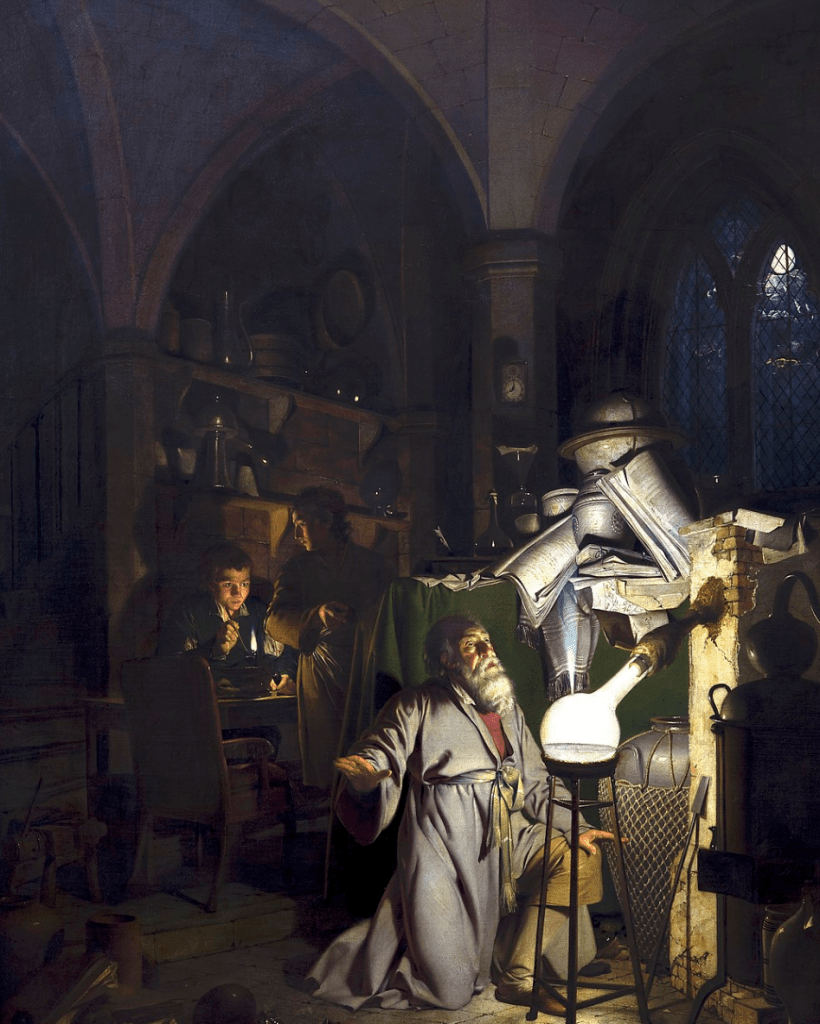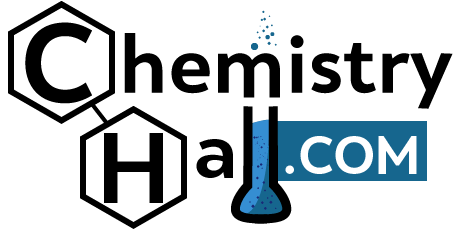The main mystery that “alchemists” historically wanted to solve is whether it is possible or not to turn lead into gold.
While not all historians agree, many consider alchemy to be the proto-science of chemistry, its forerunner. The transition from alchemy to chemistry is, in any case, a fuzzy one, and the decline in alchemy’s popularity more or less coincides with the rise of true or modern chemistry.
Since then, although no one puts much stock in alchemy as a science any longer, technology has advanced to the point today that one centuries-old dream of alchemy—turning other metals into gold—has finally become a reality.
In this post, we’ll look at how alchemy came to be, how the study of matter transitioned to the science of chemistry we know today, and how humans finally discovered how to turn lead into gold.
Ancient Examples of Chemistry
The dawn of what we would consider chemistry by modern standards did not take place until the 16th century at the earliest. However, whether they understood it or not, humans have been using the science to improve their lives for millennia.
Seemingly simple processes, like preserving foods or making soap, rely on chemical concepts that would not be fully understood until thousands of years after people started to use them. Later came more advanced techniques, such as extracting plant essences for medicines and perfumes, the ability to extract iron from iron ore, the science of metallurgy in general, and the creation of metal alloys (most notably, bronze, for which the Bronze Age is named) and glass.
Meanwhile, classical thinkers such as Empedocles and Democritus developed philosophical theories about the nature of matter, including the concept of the four elemental substances—air, water, earth and fire—and the theory of the atom, an indivisible and indestructible particle, respectively. Many principles from Greek philosophy would persist over the centuries in the now-burgeoning field of alchemy.
Alchemy, the Mystical Science of Transmutation
Most people associate alchemy with two pursuits: turning lead into gold and finding the source of human immortality. But there was actually a lot more going on in alchemy, and it was a science that was studied and practiced differently in many parts of the world.

Alchemy in the West had its roots in in the city of Alexandria in ancient Egypt. It is hard to set an exact year when it began, but because of the nature of the discipline, some people date it back to the beginnings of metallurgy, around 3500 B.C.E. However, in addition to the technological aspect, alchemy was also built on a strong foundation of philosophy and esoterism. In fact, by the 7th century, the mysticism of Western alchemy far outweighed its technical concepts.
Independently from the Western world, alchemy was also being studied in East Asia and on the Indian subcontinent, although with slightly different principles, as would be expected. Like its Western counterpart, Indian alchemy sought to transform base metals into gold and find the secret to eternal youth. In China, alchemy had a stronger connection to medicine, and arguably resulted in more useful knowledge and inventions, such as gunpowder.
But what comes to mind for most of us when we think of alchemy is medieval Europe, and alchemy likely would have never reached that time and place without the contributions of the Islamic World after the fall of the Roman Empire. In fact, the word alchemy has its origins in the Arabic language. Jabir ibn Hayyan, now considered by some to be the father of chemistry, was among the first to attempt to standardize alchemy with controlled experimentation and a scientific approach in the late 8th century.
The Beginnings of Modern Chemistry
Until the 18th century, alchemy and chemistry were not treated as separate disciplines, and both fell under the term chymistry. There were numerous flaws with alchemy experimental design and practice that eventually made it necessary for a new, more rigorous study of matter to emerge.
Works explaining chemical phenomena without the mysticism of alchemy date back to at least the 16th century, including an extremely important work by Georg Agricola on the science of metallurgy, and the origins of what we now call the scientific method by Sir Francis Bacon in 1605.
But it wasn’t until a few decades later that the first modern chemists, such as Robert Boyle, would advance the field of chemistry and fully distinguish it from alchemy, in part by arguing that there was no evidence to support the existence of only the four classical elements of water, air, earth and fire. He was also instrumental in creating rigorous standards for experiments, and he believed that a theory could not be accepted as true until it was supported by experimental evidence.
Some of the discoveries made during this time were remarkable, while others sound downright silly to us nowadays. In the late 18th century, Antoine-Laurent de Lavoisier showed that sediment in boiling water was not a result of water element transmuting into earth element, but was in fact just from the container it was being boiled in. But he also established and experimentally proved Lavoisier’s Law, also known as the Law of Conservation of Mass, which is certainly nothing to laugh at.
Can We Turn Lead into Gold?
While alchemy could not accomplish this, modern nuclear physics techniques can be used to change the nucleus of an atom, such as lead, and turn it into another, such as gold. However, this process is far from being economically feasible.
Turning Lead into Gold… with Nuclear Physics!
By the turn of the 20th century, after alchemy had long fallen out of fashion among scholars, physicists Frederick Soddy and Ernest Rutherford witnessed how the element thorium turned into radium through radioactivity. Soddy immediately recognized this as transmutation, but Rutherford was more apprehensive: “For Christ’s sake, Soddy, don’t call it transmutation. They’ll have our heads off as alchemists.”
As we mentioned briefly in another post, 100 fun chemistry facts, the hallmark goal of alchemy, turning lead into gold, is actually possible. It’s just not something that can be accomplished with chemistry. The answer, it turns out, lies in physics through nuclear transmutation.
Nuclear transmutation is a process that occurs naturally in the universe, in the centers of stars, supernova explosions, etc., where it is called nucleosynthesis. This is how (essentially) every element other than hydrogen and helium came into existence. But now, using particle accelerators, we can recreate this natural process and literally turn one element into another.
The reason, of course, is that an element is defined by the number of protons in its nucleus, which we refer to as the element’s atomic number. Inside stars, the incredible heat and mass allow nuclear fusion reactions to occur, by which, for example, three helium nuclei, with two protons each, come together to form a carbon nucleus with six protons. In the case of turning lead into gold, particle accelerators make it possible to knock a few protons out of the nucleus of a lead atom until only 79 protons remain—gold!
Of course, just because it’s possible doesn’t mean it makes economic sense to do it. But even so, it’s curious how the evolution of science has brought us to this point, turning something that would have been thought possible only with actual magic into something totally achievable.

I’m sure making the process cheaper will be a gradual change, but imagine how it would affect economy if suddenly a “real philosopher’s stone” was to be discovered.
We would just have to find other kind of assets in which we base our economy upon. Precious metals had been there for so long that seem irreplaceable, but I’m sure they actually are.
Boyle was far from what we would regard nowadays as a chemist but rather as an alchemist. He had lobbied the then King and Queen of England to repeal the law against alchemy(The act against multiplication). This would because the crowns was in need of gold! The act discouraged the extraction of gold from ores of other metal eg it is often found with copper, lest the miner be accused of alchemy.
This in turn caused Newton to devote the rest of his scientific work to alchemy, convinced that the cunning Irishman had cracked the secret.
Today this has been attributed to folly but old Isaak was only following the accepted theories of the time.